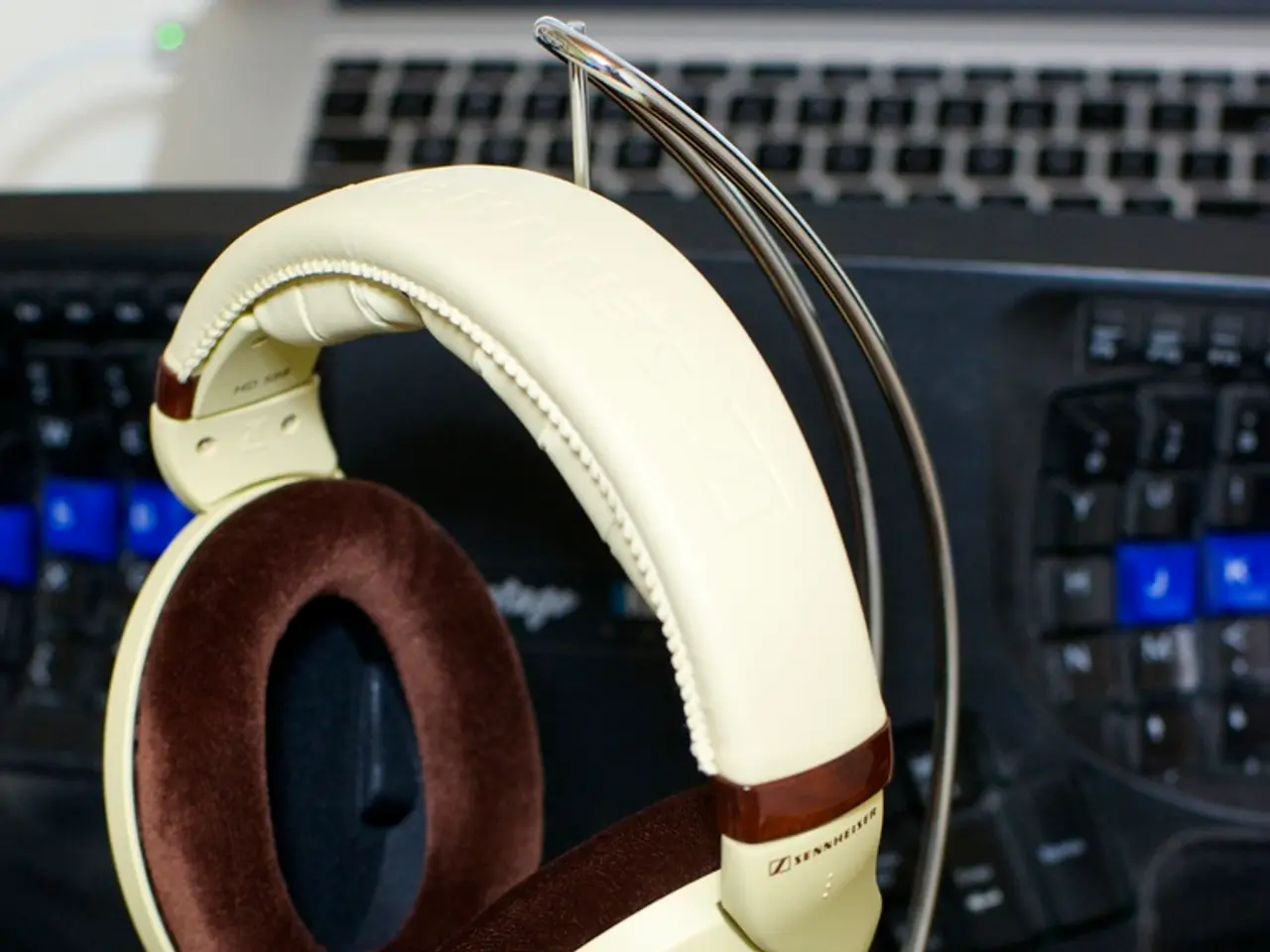Sleep Interference Investigation: Are Noise-Cancelling Headphones Harmful to Your Ears During Slumber?
Noise-cancelling headphones can be a useful tool for improving sleep quality, but they do come with potential risks for your ears and overall health. Here are some key points to consider when using these devices for sleep purposes.
Potential Risks
The primary concerns associated with noise-cancelling headphones during sleep include hearing damage, ear infections and wax buildup, physical discomfort or headaches, and in rare cases, tissue damage. High volume or long exposure can damage the tiny hair cells in the ear, leading to hearing loss or tinnitus (ringing in the ears). Moisture trapped by in-ear headphones can create an environment conducive to bacterial growth and earwax compaction, increasing the risk of ear infections. Tight headphones can cause discomfort, headaches, external compression, and very rarely, necrosis (tissue death) due to restricted blood flow if worn for extended times during sleep. Noise-cancelling features might prevent hearing alarms or emergency signals, and wired headphones can pose a risk of tangling during sleep.
Best Practices
To minimize these risks, it is best to keep audio volume below 50% maximum, prefer soft, lightweight headbands with flat speakers or wireless earbuds specifically designed for comfortable overnight use, and avoid tight or bulky models that could restrict blood flow or cause skin necrosis. Regularly clean headphones and avoid wearing them with damp ears to reduce infection risk. Choose headphones that minimize pressure on ears and surrounding tissues to prevent headaches and circulation issues. If possible, use external speakers or volume-limited devices rather than in-ear headphones when sleeping.
In summary, while noise-cancelling headphones are not inherently bad for your ears during sleep, improper use or unsuitable models can cause harm. Following recommended guidelines significantly reduces health risks and promotes safer use for sleep purposes.
For instance, choosing sleep-specific noise-cancelling headphones that are more comfortable and have features like automatic shut-off or voice prompts to wake you up can make a significant difference. However, it's important to note that noise-cancelling headphones are not specifically designed for sleeping, but some people find them helpful for improving sleep quality.
When used responsibly, noise-cancelling headphones can offer benefits such as improved sleep duration and quality, reduced stress and anxiety, and enhanced focus and concentration during the day. But it's crucial to remember that they should not be used as a substitute for addressing underlying sleep issues or medical conditions.
If you experience any discomfort, pain, or hearing issues while using noise-cancelling headphones, it's always a good idea to consult a healthcare professional or audiologist. And for the safety of children, it's best to avoid using noise-cancelling headphones for sleep due to the risk of not hearing important sounds and potential choking hazards.
In conclusion, with the right precautions and choices, noise-cancelling headphones can be a valuable aid for improving sleep quality without compromising your health. Regular cleaning, maintaining a comfortable fit, and keeping volume low are essential practices to ensure safe and enjoyable use.
[1] Mayo Clinic. (2021). Noise-induced hearing loss. [online] Available at: https://www.mayoclinic.org/diseases-conditions/noise-induced-hearing-loss/symptoms-causes/syc-20373440
[2] Harvard Health Publishing. (2021). Noise-induced hearing loss. [online] Available at: https://www.health.harvard.edu/diseases-and-conditions/noise-induced-hearing-loss
[3] National Institute on Deafness and Other Communication Disorders. (2021). Noise-Induced Hearing Loss. [online] Available at: https://www.nidcd.nih.gov/health/noise-induced-hearing-loss
[4] American Speech-Language-Hearing Association. (2021). Noise-Induced Hearing Loss. [online] Available at: https://www.asha.org/public/hearing/prevention/HearingProtection-Noise.htm
- Despite their potential benefits for sleep quality, it's essential to acknowledge the risks associated with noise-cancelling headphones, such as hearing damage, ear infections, and health-and-wellness concerns, when using these devices for sleep purposes.
- To promote health and maintain safety, it's crucial to adopt best practices like keeping volume levels low, choosing sleep-specific gadgets, and practicing regular maintenance of the devices, while also understanding the limitations of noise-cancelling technology in terms of sleep improvement.




